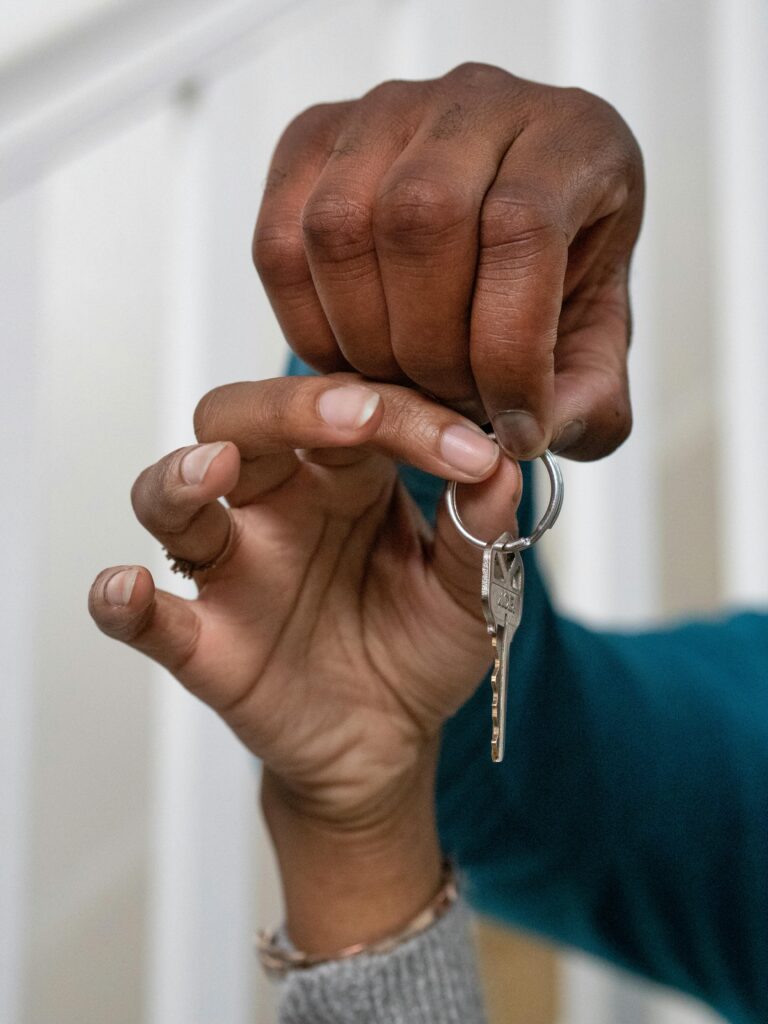Buying your first home is one of life’s most thrilling—and daunting—milestones. It’s easy to get caught up in the excitement of house hunting, attending open houses, and imagining your future in a cozy living room or spacious backyard. But in the rush to finally become a homeowner, many first-time buyers unknowingly fall into traps that could cost them thousands or delay their journey entirely.
Whether you’re dreaming of a downtown condo or a suburban family home, being aware of the most common mistakes can help you avoid buyer’s remorse. Below are 10 rookie mistakes every first-time buyer should steer clear of, along with helpful tips to ensure a smooth and successful buying experience.

01
Skipping Mortgage Preapproval
One of the biggest missteps new buyers make is shopping for homes before knowing what they can realistically afford. Preapproval from a lender isn’t just a formality—it gives you a clear idea of your budget, shows sellers you’re serious, and can speed up the process when you’re ready to make an offer.
Without preapproval, you risk falling in love with a home that’s out of your financial reach, or worse, getting outbid by preapproved buyers. A preapproval letter gives you negotiating power and helps you stay within your financial comfort zone.
02
Ignoring Your Credit Score
Your credit score is one of the most important factors in determining your mortgage eligibility and interest rate. Yet, many first-time buyers enter the market without reviewing or understanding their credit profile.
A low credit score can lead to higher interest rates, which can increase the total cost of your mortgage by tens of thousands of dollars. Before applying, review your credit report for errors, pay down high balances, and avoid opening new credit lines in the months leading up to your purchase.
03
Underestimating the True Cost of Homeownership
Many first-time buyers focus solely on the purchase price and monthly mortgage payments—but that’s only part of the story. Homeownership includes property taxes, homeowner’s insurance, maintenance costs, utilities, and in some cases, homeowners association (HOA) fees.
Failing to budget for these recurring expenses can put financial stress on even the most affordable home. To avoid surprises, create a detailed monthly budget that includes both expected and variable costs of owning a home.
04
Draining Your Savings for a Down Payment
While it’s admirable to aim for a sizeable down payment to avoid private mortgage insurance (PMI), emptying your savings to do so can leave you financially vulnerable. Emergencies happen—your water heater could fail, your roof might need repairs, or you may face unexpected medical bills.
Having a healthy emergency fund after closing is just as important as affording the home in the first place. Ideally, keep at least three to six months’ worth of living expenses in reserve post-purchase.
05
Not Exploring First-Time Buyer Programs
Many states, cities, and counties offer programs specifically designed to assist first-time buyers, including down payment assistance, lower interest loans, and tax credits. Unfortunately, many buyers either don’t know about these programs or assume they won’t qualify.
Do your homework and talk to your lender about local or national programs that could reduce your upfront costs or monthly payments. These resources are often underutilized but can make a big difference in affordability.
06
Failing to Shop Around for Mortgage Rates
Your mortgage rate will significantly impact your monthly payment and the overall cost of your loan, yet many buyers accept the first offer they receive. Rates and terms can vary widely between lenders, and even a small difference can result in thousands of dollars over time.
Get quotes from multiple lenders—including banks, credit unions, and online institutions—and compare not just the interest rates, but also fees and loan terms. Use these offers to negotiate and secure the best deal possible.
07
Letting Emotions Drive the Purchase
It’s natural to fall in love with a particular home, but letting your emotions override your budget or long-term plans can be risky. Emotional decisions can lead to overpaying, skipping inspections, or overlooking important red flags.
Approach your home search like a business transaction. Know your budget, prioritize your needs over wants, and be prepared to walk away if the deal doesn’t align with your goals. You’ll thank yourself later.
08
Skipping the Home Inspection
A home inspection is a critical step in the buying process—it can uncover structural issues, outdated electrical systems, roof damage, plumbing problems, or pest infestations that aren’t visible during a walk-through.
Some buyers are tempted to waive the inspection to make their offer more appealing in competitive markets, but this is a gamble that can backfire. A thorough inspection provides peace of mind and can save you from costly surprises after moving in.
09
Misjudging the Commute and Neighborhood
A beautiful home at a great price might lose its charm if it adds an hour to your daily commute or is located in an area with poor schools, limited amenities, or rising crime rates. Many first-time buyers focus solely on the house itself and overlook the importance of location.
Visit the neighborhood at different times of day, evaluate traffic patterns, explore nearby services, and check online reviews or crime statistics. Remember, you’re not just buying a home—you’re investing in a lifestyle.
10
Making Major Financial Moves Before Closing
You’ve found your dream home, and you’re just waiting for the closing date. Now’s the perfect time to buy furniture, apply for a new credit card, or change jobs, right? Wrong.
Lenders continue to monitor your credit and financial status right up until closing. Making big purchases or altering your job situation could affect your debt-to-income ratio or cause your mortgage approval to fall through.
Keep your finances stable until after you’ve signed on the dotted line and received the keys to your new home.
Final Thoughts: Educate Yourself and Move Smart
Buying your first home is an incredible achievement—but it also comes with complexity. The process can feel overwhelming at times, but with preparation, the right team, and a clear financial plan, you can avoid common pitfalls and make informed decisions.
Work with experienced professionals like a trusted real estate agent, a knowledgeable lender, and a home inspector you can rely on. Take your time to understand the process and don’t hesitate to ask questions. After all, buying a home is more than just a transaction—it’s the foundation for your future.
Avoid these rookie mistakes, and you’ll be well on your way to turning the key on a smart, sustainable, and joyful homeownership journey.



